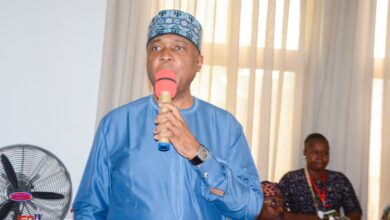After exiting recession, what next?

The bleakness that descended on Nigeria after it was announced that the country slipped into recession last year elicited all manner of debates that lingered for about 12 months. The debates were technical but the more impactful were those which asked questions on how ordinary Nigerians will fare in such an economic downturn. To worsen matters, inflation rose rapidly and more critically, prices of petrol jumped from N86 per litre to N145. This compounded all economic indices. The future looked bleak and indeed it was.
As we are aware, recession is an economic term which refers to a consistent contraction in gross domestic growth, GDP for three consecutive quarters. Of course, GDP refers to aggregate economic activities of a country. For Nigeria, there were very serious problems ranging from acute reduction in revenue as a result of fall in global oil prices from a peak of $125 per barrel to $25. As if this was not enough, militants targeted pipelines in the delta to cut back on capacity to export crude. This reduced our quota from 2.3 million barrels a day to as low as 600, 000 barrels.
Nigeria’s finances were hit below the belt. Coupled with large scale corruption with piling death, poor foreign exchange earnings and salary allowances owed for months in states, manufacturers could not produce, where they did, folks could not buy because there was simply no money. And when you no longer produce and no longer sell, the economy will go into a tailspin. This was the recession we dreaded.
Therefore as the National Bureau of Statistics, NBS announced the change of fortune during the week; it came with a lot of banters, especially in government circles. Surely, like President Muhammadu Buhari stated in his reaction to the news of the exit, it is until the man and woman in the streets feel the economic impact in their lives, they will not understand what exiting recession means. While we commend the economic team of the president led by the vice president for keeping it simple and achieving this turn around, there is still work to be done.
We also welcome the support given the economic team by the National Assembly, especially the Senate. The 8th Senate in a statement by Chairman of its Committee on Media and Public Affairs, Senator Aliyu Sabi Abdullahi, stated that it was truly commendable that after five consecutive quarters of contraction, the economy grew by 0.55 per cent in the second quarter of 2017, year on year. Abdullahi also stated that the improved performance of the trade, manufacturing, agriculture and oil sectors was an indication that with carefully aligned policy and legislative interventions, Nigeria’s economy could thrive beyond current forecasts and expectations.
“The Senate received Q2 NBS economic report with great excitement. We are delighted that government’s response to the economic recession has begun to yield tangible results. The public will recall that in the days following the announcement of the 2016 recession, the Senate initiated steps and tabled 21 recommendations that it submitted to the executive for immediate action. We also listed out economic priority bills, many of which have now been passed, or at the final stage. We are also happy to note that many of the economic recommendations, specifically in the areas of retooling our agriculture and trade policies were adopted. This shows that the ‘all hands on deck’ approach was necessary from both branches of government”, his statement continued.
Going forward, we hope that the executive and legislative arms of government will collaborate further to address more national challenges. Prices of goods are still high. The issue of large scale job losses or unemployment deserves scaling up options. We are aware of the government’s actions in agriculture and the NPOWER programme. Yet, we hope these options peculate to several persons around the country. In fact, the news about re-jigging the Agriculture Bank is a welcome development. But while at it, more urgent and serious actions must be taken to stop herders/farmers conflict. This is giving farmers in the north central and southern states serious cause for worry. If not well taken care of, farmers will abandon their farms thereby worsening the unemployment problems.
We hope that we do not return to the kind of crisis we just went through. Everyone must be on board and government must try to be more inclusive and broad in its choices to accelerate economic activities.




